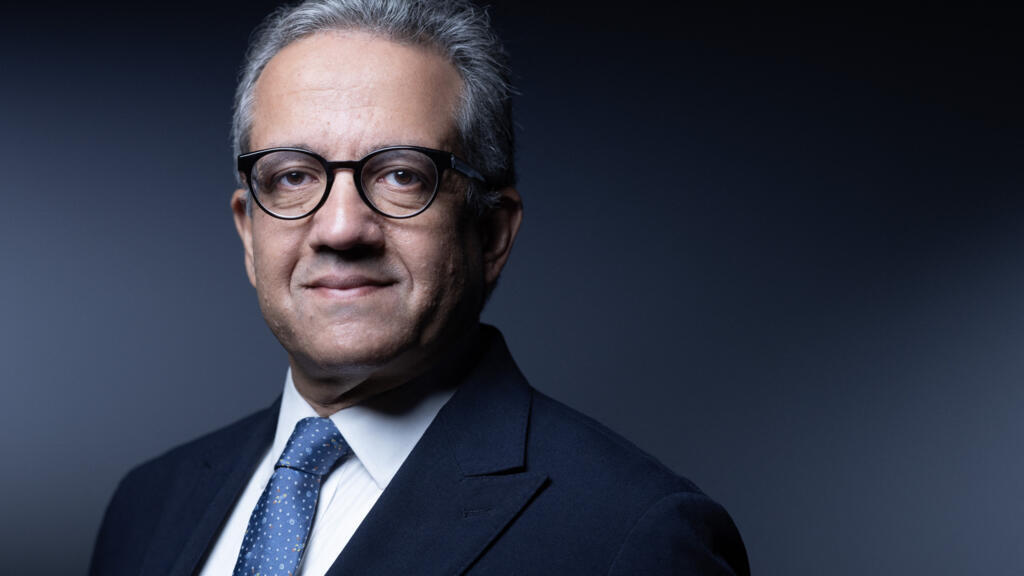
The United Nations' cultural agency selected former Egyptian tourism and antiquities minister Khaled El-Enany as its new chief, handing him the keys to revive Unesco's fortunes after the US withdrew from it for a second time.
Khaled El-Enany, 54, was up against Édouard Firmin Matoko, 69, of the Republic of Congo, who launched his campaign early in April 2023.
The vote took place as a secret ballot, for a four-year term.
Unesco's board, which represents 58 of the agency’s 194 member states, elected him with 55 votes. Matoko won two votes. The United States did not vote.
El-Enany was the favourite.
He had built strong regional backing and international alliances, and had been campaigning full-time for two years, receiving public support from the League of Arab Countries, the African Union and countries like Brazil, France, Germany and Turkey.
Matoko, for his part, entered the campaign late, only six months before the vote, and failed to overtake the favourite candidate at the finish line.
The selection will now be put forward for approval to Unesco members on 6 November, in Samarkand, Uzbekistan, then the new director will take office on 14 November.
Just after leaving the plenary hall, El-Enany announced to the press that during the first 100 days, he would meet all representatives of the member states to develop a strategic plan for the future of the organisation.
Unesco's virtual museum is a window on the world of artefact trafficking
End of an era
The outgoing chief, French diplomat Audrey Azoulay, has completed the maximum two four-year terms.
In eight years, the French woman has had a profound impact on Unesco. Its budget has doubled, increasing from $450 million to $900 million per year. She has increased the UN agency's visibility and launched flagship projects, such as the reconstruction of Mosul in Iraq.
She has also highlighted African heritage: 19 sites have been inscribed on the World Heritage List since 2018, compared to only 11 under her predecessor.
Thirty-seven African intangible cultural heritage sites have also been added to Unesco's list, representing nearly half of the world's new entries.
The director-general's governance style was however often deemed "Jupiterian" by some, and has been described too top-down, leaving little room for NGOs and member state delegates.
"She has prioritised action over consultation," one diplomat, speaking on condition of anonymity, told RFI.
The anthropologist Lynn Meskell agrees. She believes that Unesco has become "hostage to its member states," reduced to a technocratic agency that now avoids sensitive issues.
In her book A Future in Ruins, she speaks of "management of the impasse" and takes the example of Gaza. "On Gaza, there is almost nothing, it's really minimal," she wrote. "Unesco used to have the courage to take on these issues, to find mechanisms to bring states to dialogue, to find solutions, to be accountable to each other. Today, there is nothing."
US withdrawal
Though Azoulay worked to diversify funding sources, the UN culture and education agency still receives about 8 percent of its budget from Washington, while the US announced its withdrawal this year, to take effect at the end of 2026. Its funding will then be cut.
US poised to quit Unesco again, amid Trump's push to scale back global ties
The White House described Unesco as supporting "woke, divisive cultural and social causes" when Trump decided to pull the US out in July, repeating a move he took in his first term that was reversed by Joe Biden.
The agency was founded after World War Two to promote peace through international cooperation in education, science, and culture. It is best known for designating and protecting archaeological and heritage sites, from the Galapagos Islands to the tombs of Timbuktu.
Unesco grants intangible heritage status to Syria's Aleppo soap
"How come a country like Egypt, with its long history, with layers of Pharaonic, Greek, Roman, Coptic, Arab, Islamic civilisation, has not led this important organisation? This is not acceptable at all," Egyptian Foreign Minister Badr Abdelatty said in Paris last week.
But El-Enany has faced criticism at home from conservationists who accused his ministry of failing to shield sensitive heritage sites in Cairo and the Sinai Peninsula.
(with Reuters)







